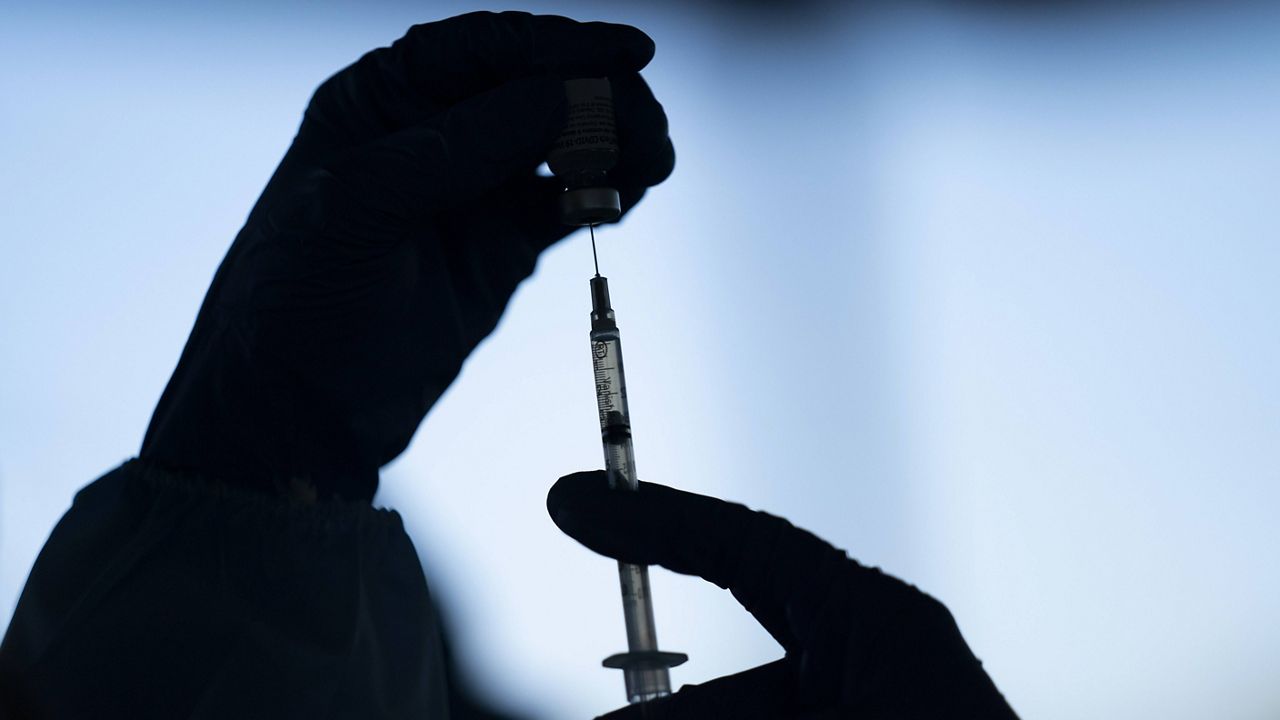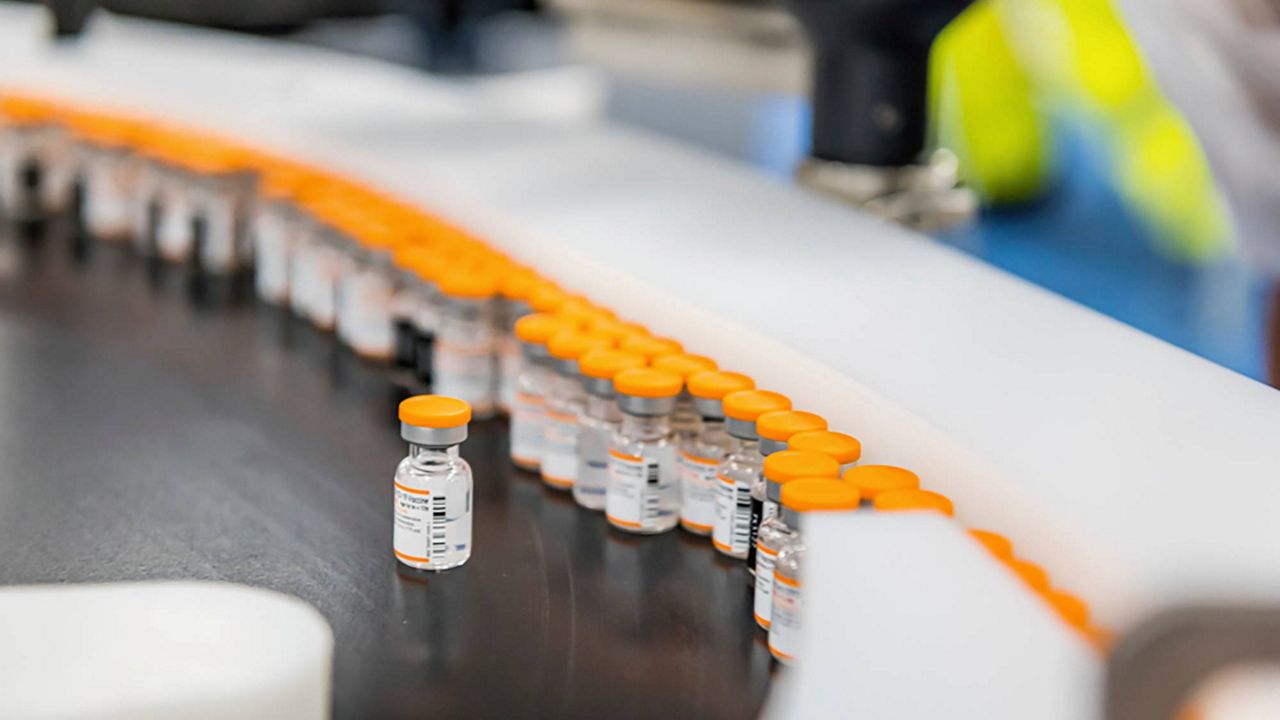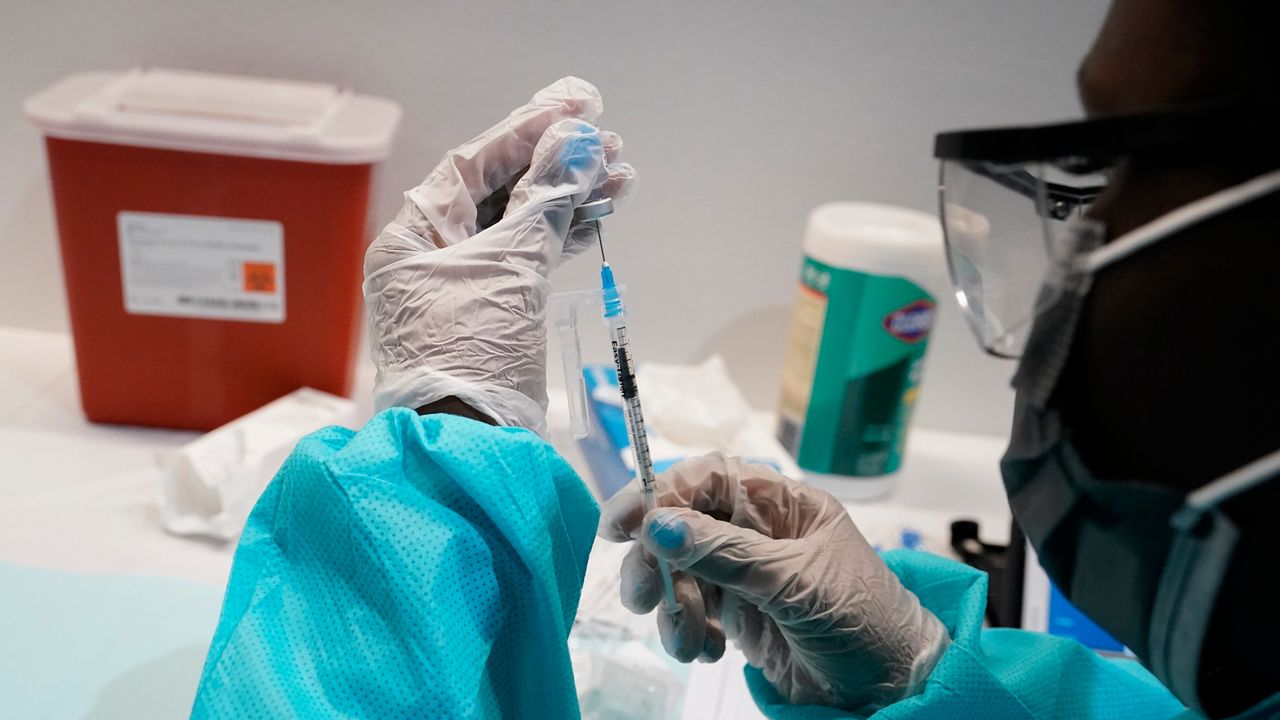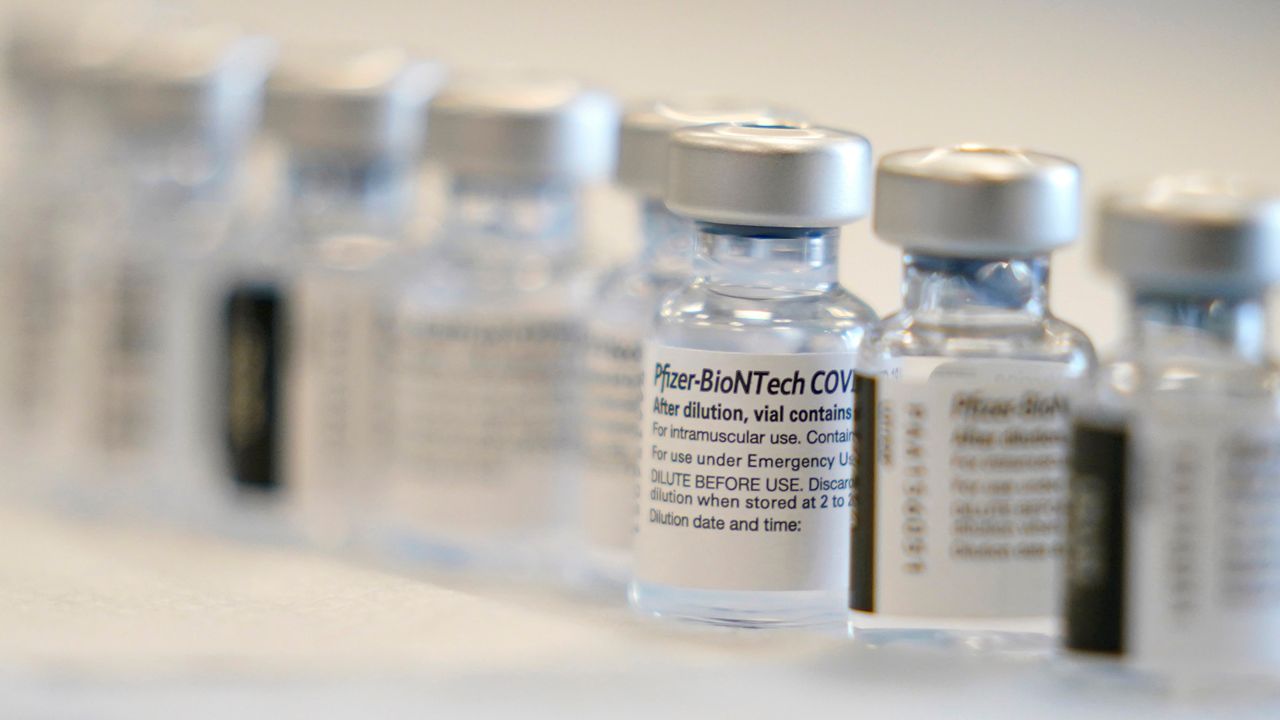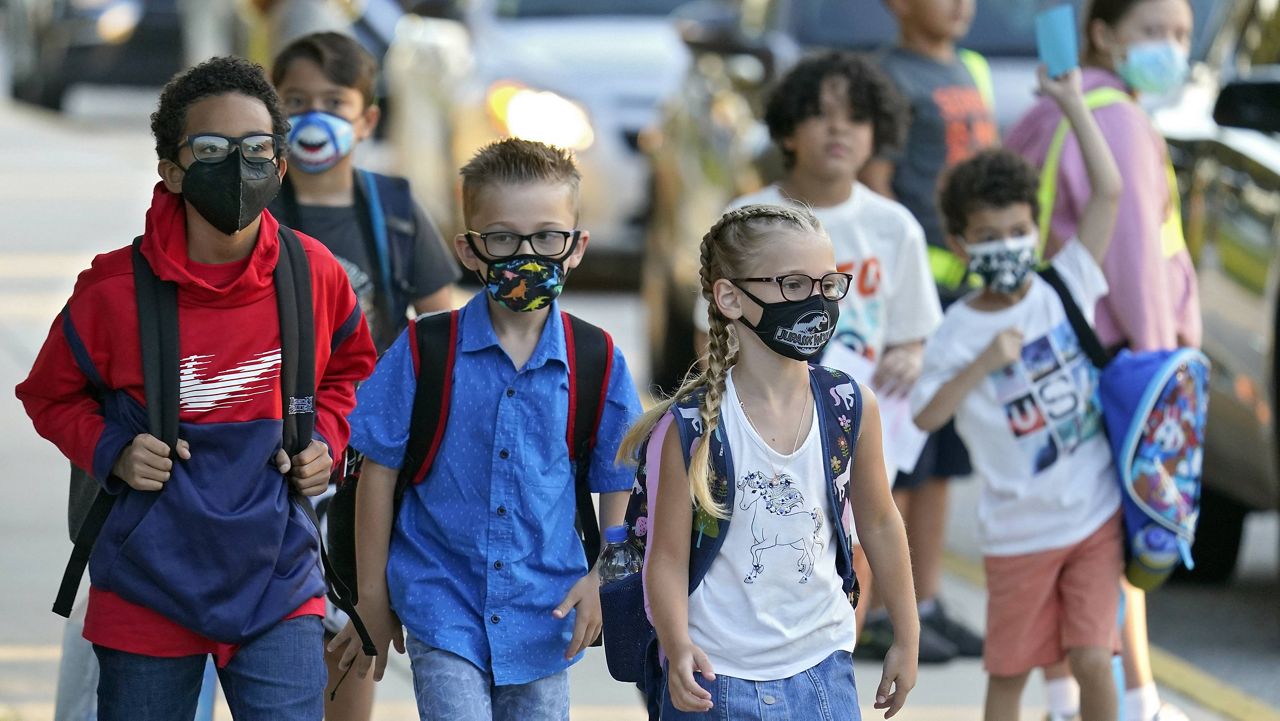The COVID-19 vaccine developed by Pfizer and BioNTech appears to be only slightly less effective against the virus mutations first detected in England and South Africa, a laboratory study found.
What You Need To Know
- The COVID-19 vaccine developed by Pfizer and BioNTech appears to be only slightly less effective against the virus mutations first detected in England and South Africa, a laboratory study found
- Researchers conducted the study by engineering three viruses containing key spike mutations found in the variants discovered in the U.K. and South Africa and testing it on blood drawn from people who had received the vaccine
- The scientists acknowledge that their study is limited because it does not look at the full set of mutations found in the variants, and the research has not been peer reviewed
Researchers from Pfizer and the University of Texas Medical Branch conducted the study by engineering three viruses containing key spike mutations found in the variants discovered in the U.K. and South Africa, which are more easily transmissible than other strains, and testing it on blood drawn from people who had received the vaccine. They wrote that they found “small effects of these mutations on neutralization.”
The findings, which have not yet been peer reviewed, were posted Wednesday on bioRxiv, a website for unpublished preprints of medical research.
The scientists acknowledge that their study is limited because it does not look at the full set of mutations found in the variants, but they say the results are consistent with how the vaccine performed against other pseudoviruses.
Pei-Yong Shi, one of the study’s authors, told Retuers the scientists are currently engineering a virus with the full set of mutations and expect to have those results in about two weeks.
The researchers said there should be continuous monitoring of the virus to determine if it has mutated enough to significantly lessen the effectiveness of the vaccine and that preparations should be made to possibly update it.
The variant discovered in the U.K. has now been detected in 26 states, CDC Director Dr. Dr. Rochelle Walensky said Wednesday. Last week, British Prime Minister Boris Johnson said there is "some evidence" the variant "may be associated with a higher degree of mortality,” a statement that Dr. Anthony Fauci, the U.S. government’s top infectious disease expert, said this week appears to be backed up by preliminary data.
The first two U.S. cases of the strain first detected in South Africa have been discovered in South Carolina, health officials there said Thursday.
Moderna, which makes the other coronavirus vaccine currently approved in the United States, said Monday that an in vitro study showed the variants had no significant impact on the effectiveness of its vaccine.
The company, however, added that the vaccine was slightly less effective against the strain discovered in South Africa and that it is launching two new studies: one into developing a third shot, and another into advancing a new vaccine specific to the variant.
Both Pfizer’s and Moderna’s vaccines currently require two shots to reach full efficacy, which clinical trials found to be about 95%.





